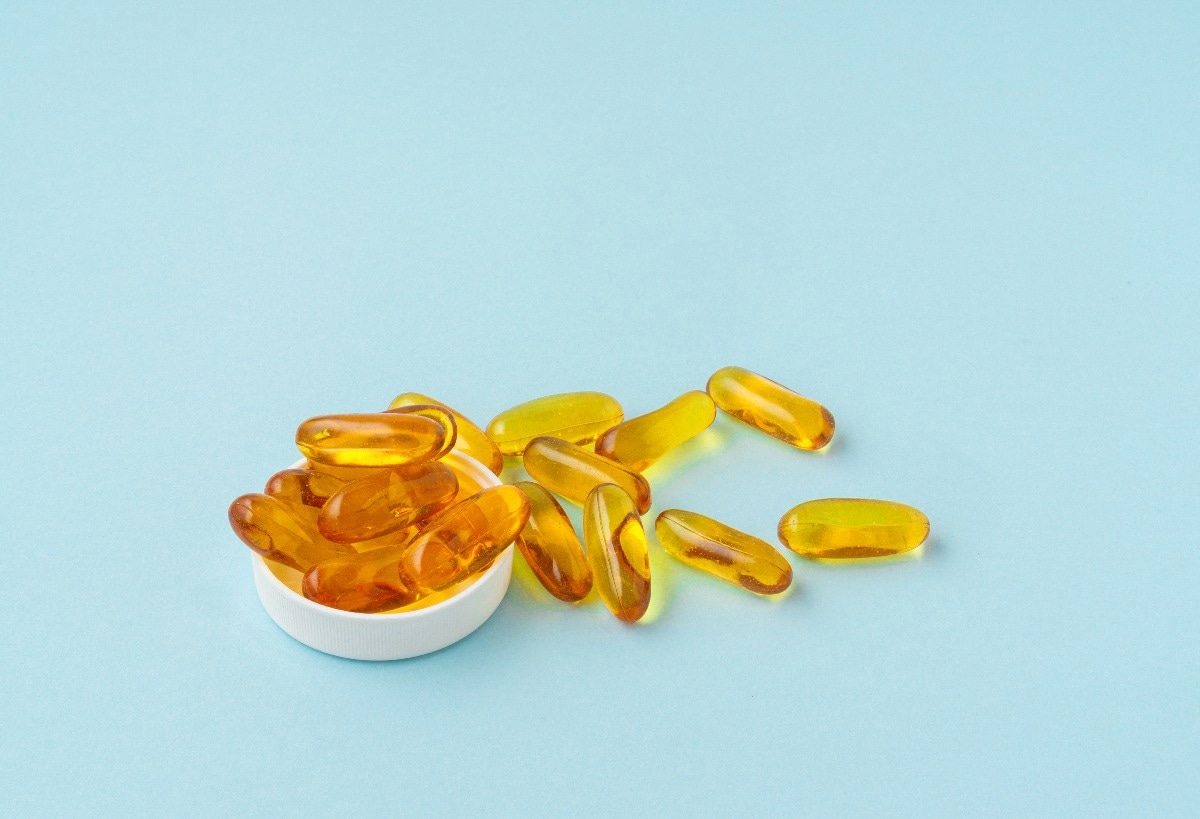Regular fish oil consumption found effective in preventing severe COVID-19 outcomes
In a recent study posted to the medRxiv* pre-print server, researchers investigated whether regular fish oil use decreased the risk of contracting severe acute respiratory syndrome coronavirus 2 (SARS-CoV-2) infection. Additionally, they examined whether fish oil users had a lower risk of developing adverse coronavirus disease 2019 (COVID-19) outcomes, including hospitalization and death in a national population-based cohort registered with the United Kingdom (UK) biobank.

Background
There is ample evidence that fish oil supplementation has a beneficial effect on human immune function, which could help reduce the risk of SARS-CoV-2-infection and improve the survival rate in COVID-19 patients. However, this data evidence is primarily from random controlled trials with inadequate sample sizes. Overall, there is a lack of large-scale population-based cohort studies evaluating the usefulness of fish oil supplements in real-world settings.
Study design
In the present study, researchers recruited 110,440 UK biobank participants (54.44% females) with a mean age of 55.5 years from centers across England, Scotland, and Wales. They asked them to fill out a detailed touch screen questionnaire at baseline to record the regular use of fish oil supplements. The study participants also provided biological samples and underwent physical measurements at baseline.
The team identified COVID-19-related hospital admission and mortality from inpatient hospital data updated to September 30, 2021. The study follow-up continued for up to 12.1 years from the baseline assessment or ended at the time of COVID-19 diagnosis, inpatient hospitalization, or mortality, whichever occurred first.
Further, the researchers used Cox proportional hazard models to evaluate the correlations between habitual fish oil use and three study outcomes, risk of SARS-CoV-2 infection, COVID-19-related hospital admission, and mortality. They split the participants based on the time of follow-up into less than 12.1 years and greater than or equal to 12.1 years while evaluating the risk of SARS-CoV-2 infection. This time was the median follow-up time and the time of the Omicron emergence.
The study had three sets of models. First or the basic study model or model 1 was non-adjusted. Model 2 was a pre-adjusted model for baseline age and male or female gender. Model 3 was a multivariable-adjusted model accounting for several additional variables, including ethnicity, household income, smoking, and alcohol consumption, vegetable and non-oily fish consumption, and mineral and other dietary supplementation. In addition, they plotted weighted Kaplan-Meier curves to compare the event-free probability of regular fish oil users and non-users.
Study findings
In total, 29424 participants reported using fish oil supplementation at baseline. The study population had more women, older people, previous smokers, and habitually used vitamin and mineral supplements. Additionally, these fish oil users showed a higher prevalence of longstanding hypertension and myocardial infarction.
Study model 2, adjusted for age and gender, showed a 25% and 31% reduction in the risk of COVID-19 hospital admission and mortality, respectively, among those habitually using fish oil. Model 3, fully-adjusted for all variables, showed fish oil use associated with adjusted hazard ratios (aHRs) of 0.79 and 0.72 for COVID-19 hospital admission and mortality, respectively. Although weighted Kaplan-Meier curves showed reduced risks of adverse COVID-19 outcomes with fish oil use, this model showed no significant associations between the two among participants with more than 12.1 years follow-up.
A study by Louca et al. showed regular fish oil users had a 12% lower risk of SARS-CoV-2 infection in the UK when Omicron had not even emerged. The recent study used the latest UK data, whereby in January 2022, Omicron caused over 99% of all sequenced cases. This study, thus, showed the varying impact of fish oil use on SARS-CoV-2 infection in different periods. In the earlier period, fish oil use prevented SARS-CoV-2 infection, as observed in Louca’s study. However, the authors noted no such effect of fish oil used in the later stage when Omicron became the predominant SARS-CoV-2 variant in the UK.
Conclusions
To summarize, the study analysis using a fully-adjusted Cox proportional hazard model showed that habitual fish oil use was consistently associated with a lower risk of COVID-19-related hospital admission and mortality. Also, the population followed up for more than 12.1 years showed no signs of being at lower risk of SARS-CoV-2 infection due to regular fish oil use.
The study shed light on the biological mechanisms which govern fish oil use-related benefits for COVID-19-related outcomes. The main ingredient of fish oil is omega-3 polyunsaturated fatty acids (n-3 PUFA), which have powerful anti-inflammatory properties. A growing body of evidence suggests that n-3 PUFAs attenuate the uncontrolled immune response in the lungs following bacterial or viral infections. Thus, fish oil use could improve COVID-19 clinical outcomes, especially in hypertensive, oncologic, and diabetic patients. The authors emphasized the urgent need for large-scale randomized controlled studies to confirm their findings.
*Important notice
medRxiv publishes preliminary scientific reports that are not peer-reviewed and, therefore, should not be regarded as conclusive, guide clinical practice/health-related behavior, or treated as established information.
Journal reference:
- Yuying Ma, Lijun Zhang, Ruijie Zeng, Dongling Luo, Rui Jiang, Huihuan Wu, Zewei Zhuo, QI Yang, Jingwei Li, Felix W Leung, Jinghua Wang, Weihong Sha, Hao Chen. (2022). Associations of habitual fish oil use with risk of SARS-CoV-2 infection and COVID-19-related outcomes in UK: national population-based cohort study. medRxiv. doi: https://doi.org/10.1101/2022.09.14.2227993 https://www.medrxiv.org/content/10.1101/2022.09.14.22279933v1




